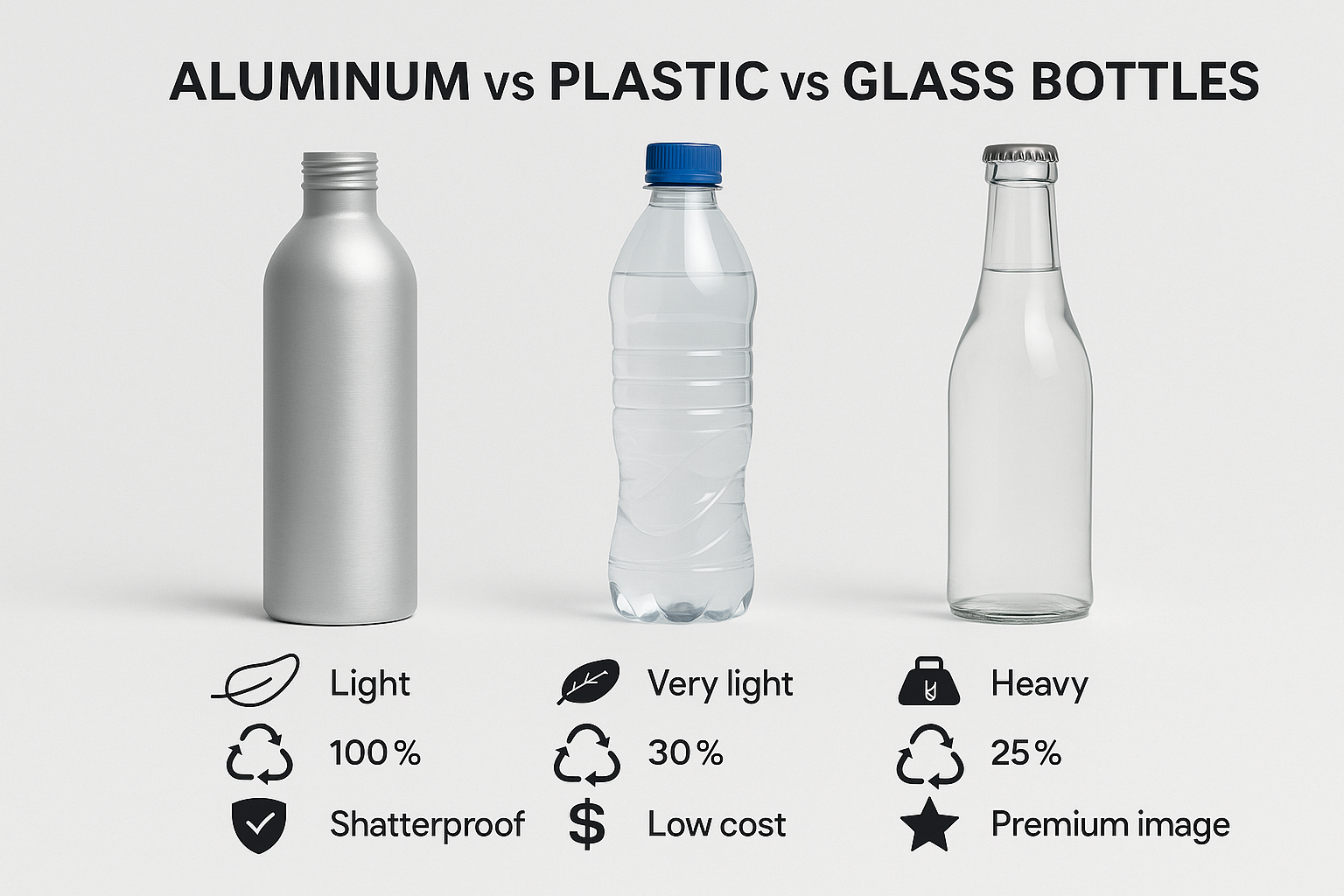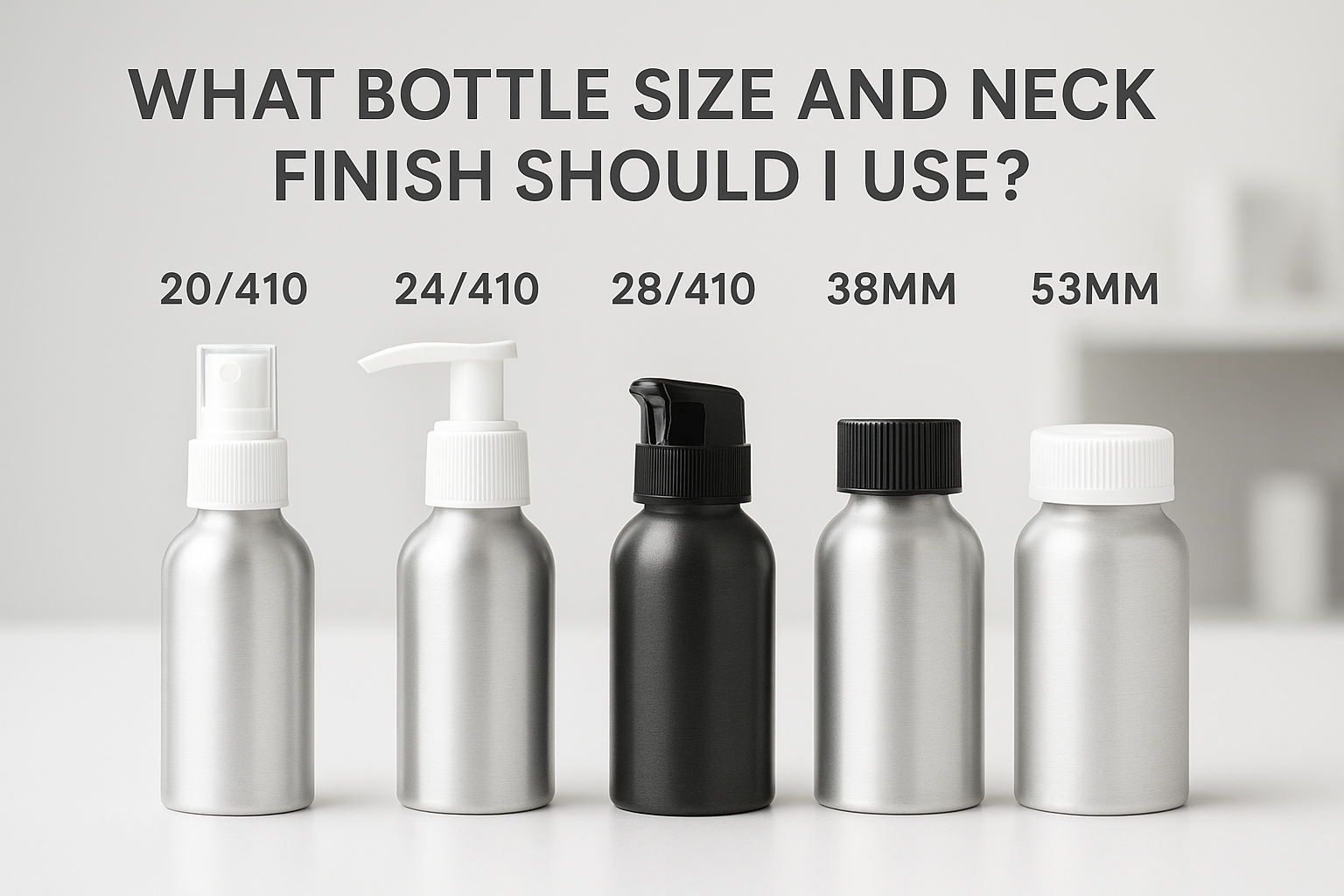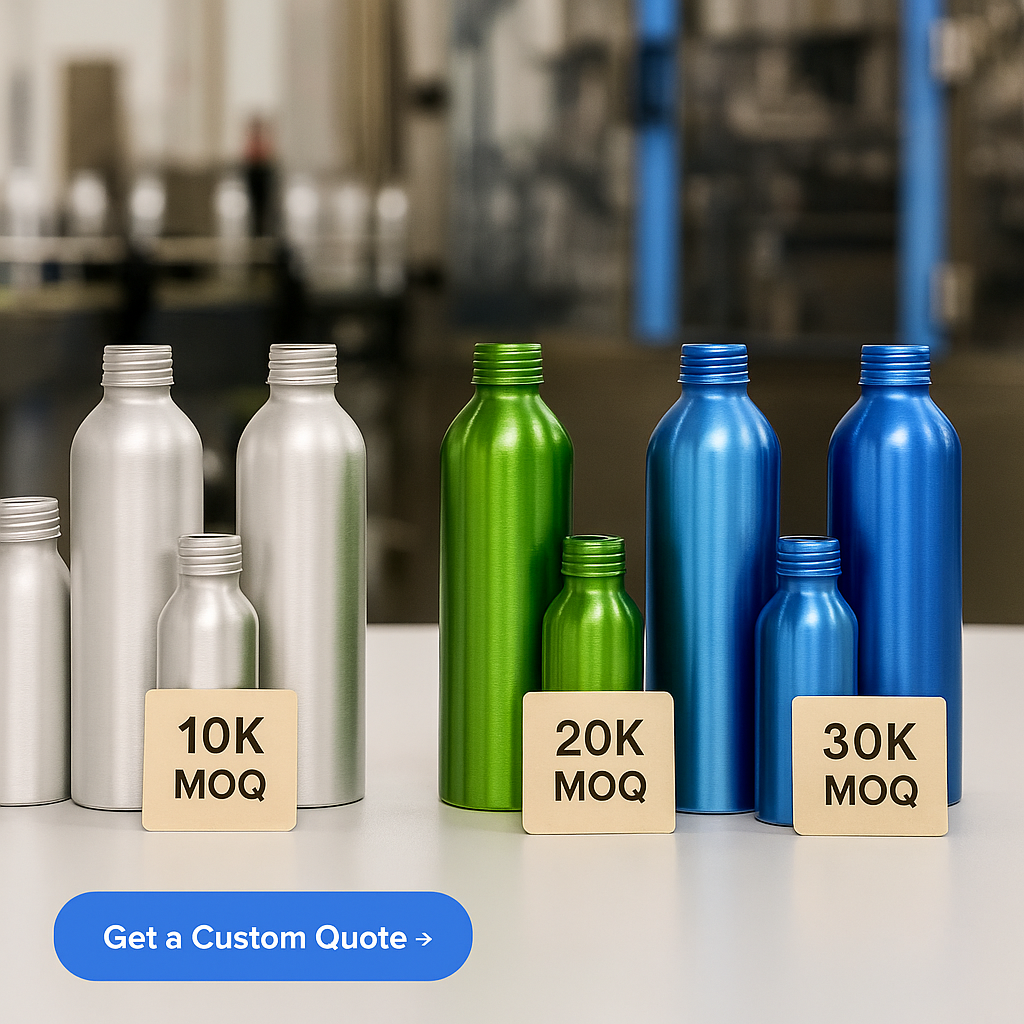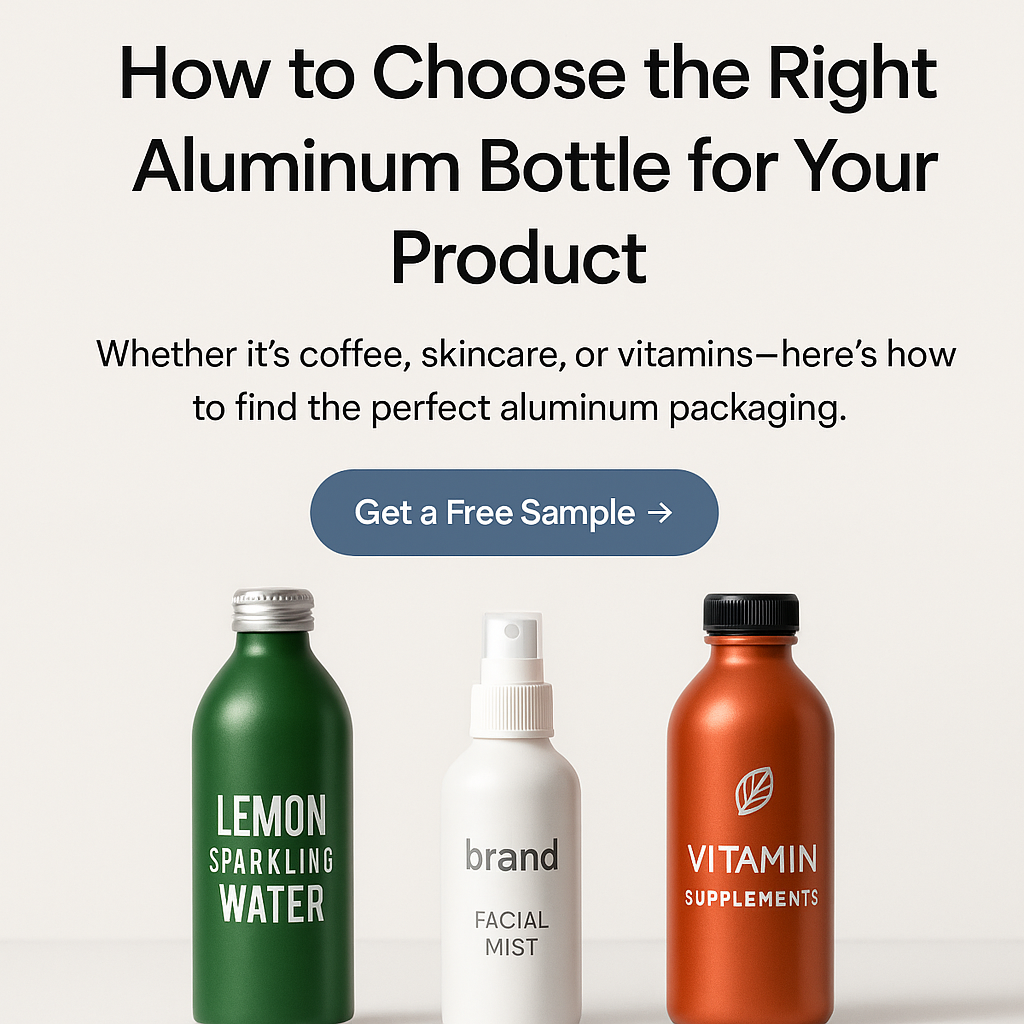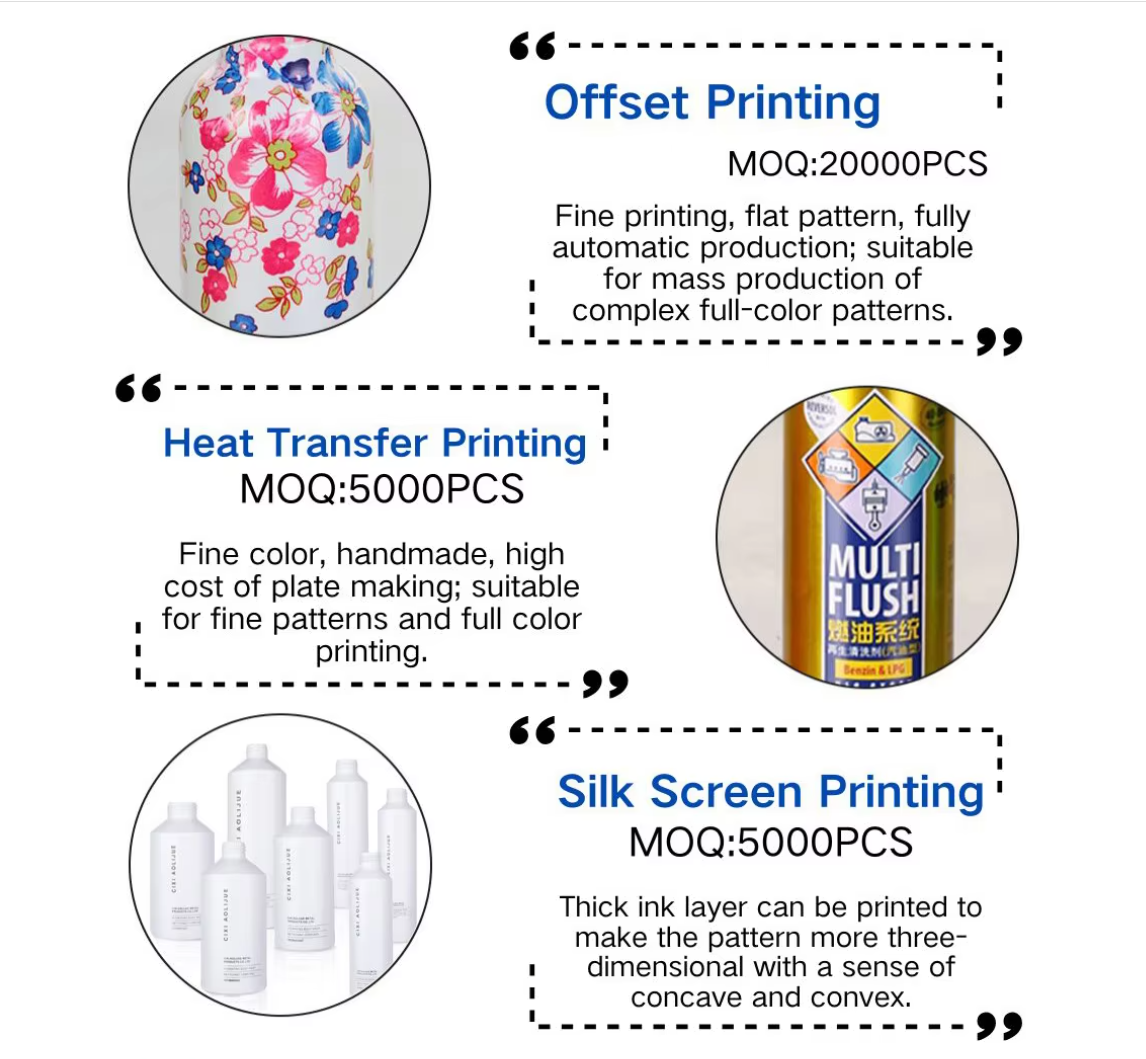
Aluminum spray bottles are becoming my go-to choice for everyday use, but are they really safe? Let’s dive into this topic together.
Aluminum spray bottles are generally safe for everyday use if they are properly coated to prevent chemical reactions with the contents. They do not leach harmful substances, making them a reliable choice for storing various liquids, provided they are not used for highly acidic solutions.
While this offers a quick reassurance about the basic safety of aluminum spray bottles, there are several factors to consider that can influence their safety and practicality. Let's delve deeper into these aspects to help you decide if aluminum is the right material for your needs.
Aluminum bottles are safer than plastic for storing liquids.True
Aluminum bottles do not leach harmful chemicals like BPA, making them safer.
What Makes Aluminum Spray Bottles a Popular Choice?
Aluminum spray bottles have surged in popularity, offering eco-friendly and stylish solutions for everyday needs.
Aluminum spray bottles are favored for their durability, lightweight nature, and eco-friendliness. Unlike plastic, they are reusable and recyclable, reducing environmental impact. Their sleek design also makes them aesthetically appealing and practical for various uses.
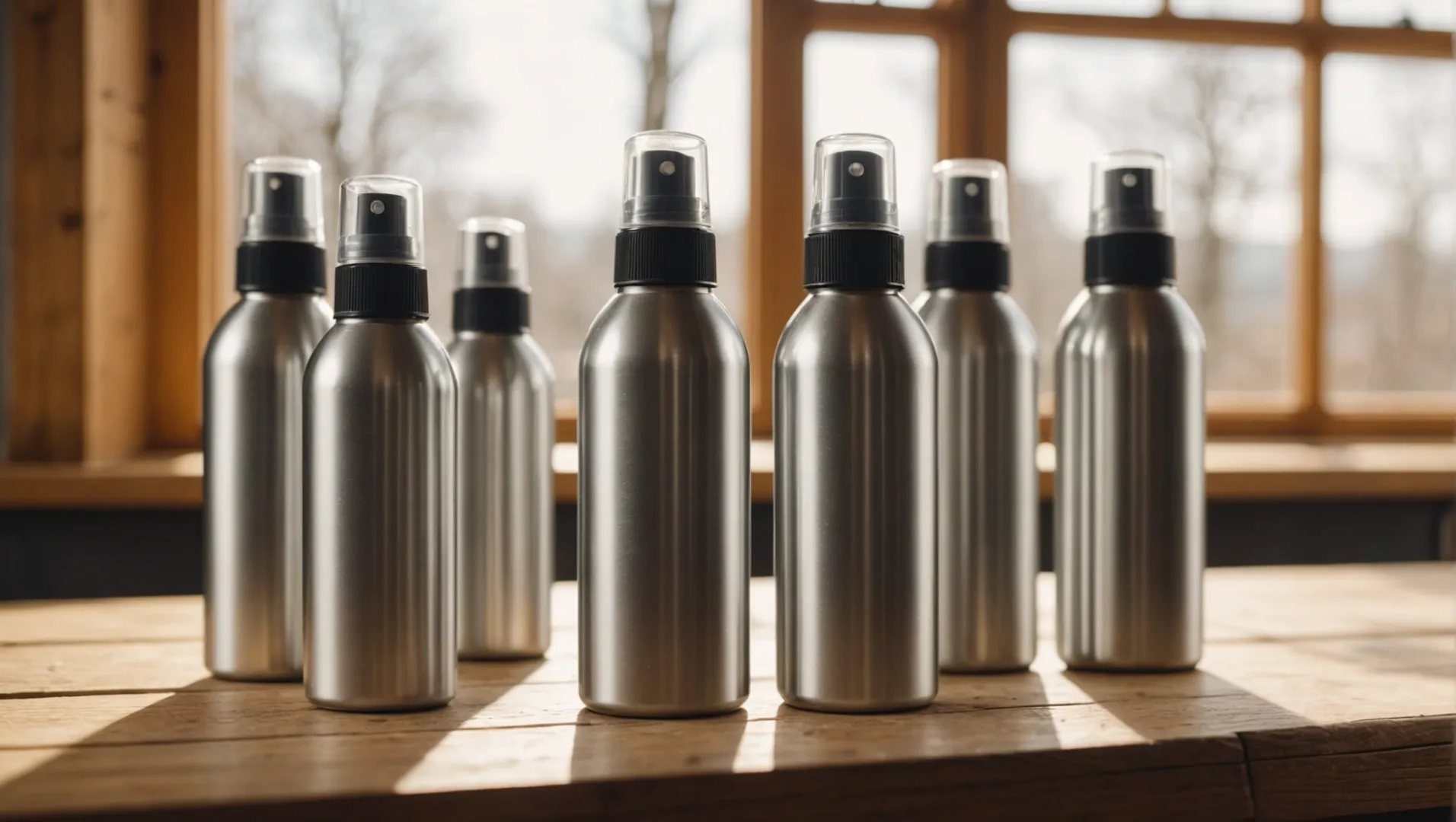
Durability and Longevity
One of the standout features of aluminum spray bottles is their exceptional durability. Unlike plastic alternatives1, which can crack or degrade over time, aluminum maintains its integrity even with frequent use. This makes them a reliable choice for both personal and commercial applications.
Moreover, aluminum bottles are less prone to corrosion compared to other metals. This resistance ensures that the bottle maintains its functionality and appearance over a prolonged period, adding to its overall value.
Eco-Friendly Benefits
Aluminum is 100% recyclable, which significantly lowers the environmental footprint associated with its use. In contrast to single-use plastics that contribute to pollution, aluminum bottles can be recycled repeatedly without losing quality. This sustainability aspect appeals to environmentally-conscious consumers looking to reduce their ecological impact.
Additionally, the production of aluminum bottles involves lower carbon emissions compared to plastic manufacturing, further enhancing their green credentials.
Lightweight and Portable
Despite their sturdy build, aluminum bottles are remarkably lightweight. This makes them ideal for travel or daily use, where portability is crucial. Whether you're carrying cleaning solutions or personal care products, an aluminum spray bottle won't add unnecessary weight to your bag.
The ergonomic design often found in these bottles also contributes to ease of use, allowing for a comfortable grip and controlled spraying action.
Aesthetic Appeal
Beyond functionality, aluminum spray bottles offer a sleek and modern look that appeals to style-conscious users. They come in various finishes and colors, allowing for customization that can match your personal aesthetic or brand image.
For businesses, this offers a unique opportunity to differentiate their products on shelves or in marketing materials by opting for aluminum packaging that stands out visually.
Versatility in Use
Aluminum spray bottles are versatile and can be used across various domains, from household cleaning to gardening and personal care. They are compatible with a wide range of liquids, provided that the content is not highly acidic, which could react with the metal if not properly lined.
This versatility makes them an attractive option for those seeking a multi-purpose container that aligns with their diverse needs.
Aluminum spray bottles are 100% recyclable.True
Aluminum can be recycled indefinitely without losing quality, reducing waste.
Plastic spray bottles are more durable than aluminum ones.False
Aluminum is more durable and less prone to degradation than plastic.
Are There Any Health Risks Associated with Using Aluminum Bottles?
With the rise of eco-friendly products, aluminum bottles have become a staple in many households. But are they completely safe to use?
Aluminum bottles are generally safe for use, especially if lined with a protective layer that prevents the aluminum from interacting with the bottle's contents. However, they should not be used for storing acidic solutions unless specifically designed for that purpose.

Understanding the Safety Features of Aluminum Bottles
Aluminum bottles are often praised for their sustainability and durability. One crucial safety feature is the internal coating. This lining is essential because it acts as a barrier, preventing the aluminum from leaching into the liquid contents. When choosing an aluminum bottle, ensure it has a BPA-free lining, which is crucial for health safety.
Potential Health Concerns
Concerns have arisen around aluminum exposure due to its potential links to health issues such as Alzheimer's disease and bone disorders. However, studies show that minimal aluminum leaches into liquids, especially when proper linings are present. It is important to avoid using aluminum bottles for highly acidic contents like citrus juices, as these can erode the lining over time.
Comparing Lined vs. Unlined Bottles
| Feature | Lined Aluminum Bottles | Unlined Aluminum Bottles |
|---|---|---|
| Chemical Barrier | Yes | No |
| Suitable for Acids | Limited | Not Recommended |
| Health Risk | Low | Higher |
Lined bottles are safer as they prevent direct contact between the aluminum and the liquid. Opting for an unlined bottle might increase the risk of aluminum leaching, particularly with acidic beverages.
Importance of Quality Assurance
When purchasing an aluminum bottle, check if it meets regulatory standards and certifications. Brands that adhere to safety guidelines often mention their compliance on labels or product descriptions. This information reassures consumers about the product's safety. To further ensure safety, research brands online and read reviews before making a purchase.
For more comprehensive insights into this topic, consider exploring different health perspectives2 or consumer reports3 on aluminum bottle usage.
Lined aluminum bottles are safe for acidic liquids.False
Lined bottles are not recommended for acidic contents due to erosion risks.
Unlined aluminum bottles pose higher health risks.True
Without a lining, there's a greater risk of aluminum leaching into liquids.
How Do Aluminum Bottles Compare to Plastic and Stainless Steel?
Choosing the right bottle material involves weighing durability, safety, and environmental impact. Here's how aluminum bottles measure up.
Aluminum bottles offer a lightweight, durable, and recyclable alternative to plastic and stainless steel. While plastic bottles are lightweight and affordable, they may leach chemicals over time. Stainless steel bottles are highly durable and non-reactive but are heavier and less eco-friendly compared to aluminum.

Durability and Longevity
When it comes to durability, aluminum bottles4 are a sturdy choice. They resist impacts better than plastic, which can crack under pressure, yet they are not as resilient as stainless steel, which can withstand extreme conditions. For everyday use, aluminum provides a good balance between weight and strength.
| Material | Impact Resistance | Weight |
|---|---|---|
| Aluminum | Moderate | Light |
| Plastic | Low | Very Light |
| Stainless Steel | High | Heavy |
Safety and Chemical Interactions
Safety is a significant consideration when selecting bottle materials. Aluminum bottles are generally safe due to their protective inner coating that prevents chemical reactions5. However, if this coating is damaged, there could be a risk of contamination. Plastic bottles might leach harmful chemicals like BPA, especially when exposed to heat. Stainless steel is non-reactive and safe for all types of beverages, maintaining purity without leaching chemicals.
Environmental Impact
In terms of environmental sustainability, aluminum and stainless steel have an edge over plastic. Aluminum is highly recyclable, with a recycling process that requires less energy compared to plastic production. Stainless steel is also recyclable but requires more resources for production. Meanwhile, plastic bottles contribute significantly to landfill waste and ocean pollution due to lower recycling rates.
Cost Considerations
Lastly, the cost is an essential factor for many consumers. Plastic bottles are the most affordable option, making them attractive for single-use scenarios. Aluminum bottles fall into a mid-range price bracket due to their recyclability and durability. Stainless steel bottles tend to be the most expensive due to their robust nature and extended lifespan6.
Ultimately, the choice between aluminum, plastic, and stainless steel will depend on your priorities concerning cost, environmental impact, durability, and safety. While each material has its pros and cons, understanding these differences can guide you toward the best option for your needs.
Aluminum bottles are lighter than stainless steel.True
Aluminum is a lighter material compared to stainless steel, making it easier to carry.
Plastic bottles are more durable than aluminum.False
Plastic is less impact-resistant than aluminum, which can withstand more pressure.
What Should You Consider When Choosing an Aluminum Spray Bottle?
Choosing the right aluminum spray bottle can enhance both safety and usability. Here’s what to keep in mind.
Consider factors like coating, size, and nozzle type when choosing an aluminum spray bottle to ensure it meets your specific needs and maintains safety standards.
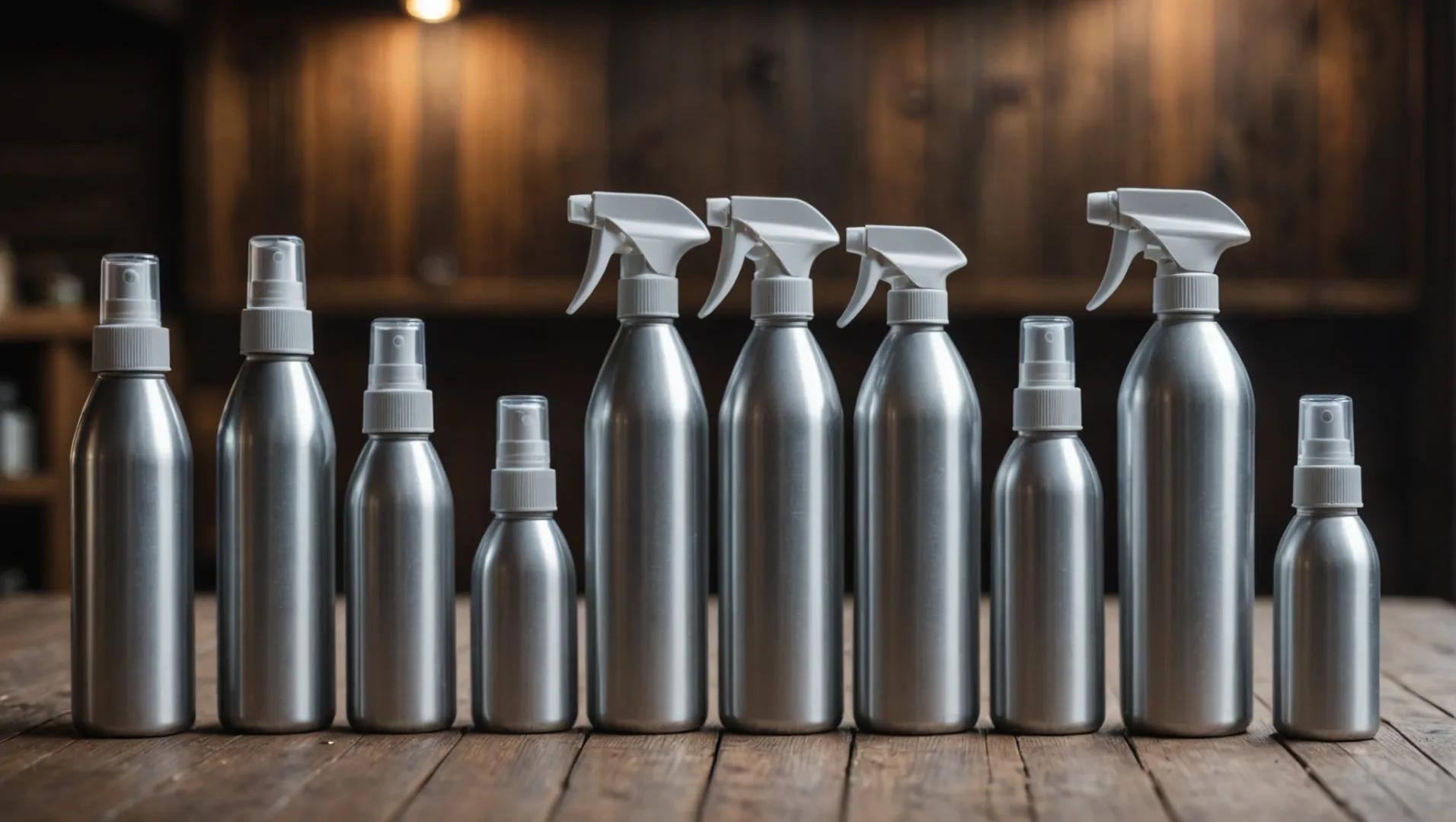
Consider the Coating
The coating inside an aluminum spray bottle plays a crucial role in preventing chemical reactions between the aluminum and the contents. A BPA-free liner or an epoxy coating can ensure that the liquid remains uncontaminated. This is particularly important if you are storing essential oils or cleaning solutions.
Size and Capacity
Aluminum spray bottles come in various sizes, from small travel-size bottles to larger options for home use. Consider how much liquid you plan to store and how portable you need the bottle to be. For instance, a 100ml bottle might be ideal for personal care products, while a 500ml bottle could be better for household cleaners.
| Use Case | Recommended Size |
|---|---|
| Travel Essentials | 50ml - 100ml |
| Personal Care | 100ml - 250ml |
| Household Cleaners | 250ml - 500ml |
Nozzle and Spray Mechanism
The type of nozzle and spray mechanism can significantly affect usability. Some bottles offer adjustable nozzles that allow you to switch between a fine mist and a direct stream. Consider your intended use: a fine mist might be suitable for hair products, while a stream may work better for cleaning applications.
Durability and Design
While aluminum is inherently durable, the design of the bottle can influence its longevity. Look for bottles with reinforced bases and seamless construction to avoid leaks or dents. Additionally, a sleek design not only enhances aesthetics but also improves ergonomics.
Eco-Friendliness and Reusability
Aluminum is highly recyclable, which makes it an eco-friendly choice. Opt for bottles that are easy to refill and reuse to minimize waste. Check if the manufacturer offers recycling programs or incentives for returning used bottles.
By focusing on these aspects—coating, size, nozzle type, durability, and eco-friendliness—you can select an aluminum spray bottle that aligns with your needs while ensuring safety and practicality. For additional insights on choosing the perfect bottle, consider exploring aluminum bottle buying tips7.
BPA-free liners prevent contamination in aluminum bottles.True
BPA-free liners or epoxy coatings prevent chemical reactions with contents.
A 500ml bottle is ideal for travel essentials.False
Travel essentials typically require smaller bottles, around 50ml-100ml.
Conclusion
Aluminum spray bottles are a safe and eco-friendly option for everyday use, provided they are used correctly. Consider your specific needs and the type of liquids you'll store. Opt for coated bottles to enhance safety and durability.
-
Explore how aluminum outperforms plastic in durability and longevity.: Aluminum is usually stronger. Plastic is more resistant to harsh chemicals while aluminum is more resistant to denting and cuts.Plastics are ... ↩
-
Gain deeper understanding from health experts about potential risks.: Bone Diseases: Excessive aluminium intake can lead to bone diseases, as it can interfere with the absorption of phosphorus and calcium in the body. Neurological ... ↩
-
Read expert reviews and comparisons on various brands.: The Aluminum Bottles Report synthesizes an online survey distributed to a balanced sample of 1666 consumers who have purchased a household or personal care ... ↩
-
Discover why aluminum is favored for its durability and sustainability.: Aluminum is a unique metal: strong, durable, flexible, impermeable, lightweight, corrosion-resistant and 100% recyclable. ↩
-
Learn about protective coatings that ensure safe use of aluminum.: The key will be the pH of your product. The nanoparticulate silicate (SiO2) should have no effect on aluminum. However, the pH of the complete formulation will ... ↩
-
See how costs vary between these two durable options.: Cost: Stainless Steel: Typically more expensive due to its durability and material properties. Aluminum: Usually cheaper, but the cost can vary ... ↩
-
Discover essential tips for selecting the best aluminum spray bottles.: Temperature Regulation: Aluminum bottles have excellent thermal conductivity, meaning they can keep beverages cold or hot for longer compared ... ↩


